Junbo Yan
AgentSociety: Large-Scale Simulation of LLM-Driven Generative Agents Advances Understanding of Human Behaviors and Society
Feb 12, 2025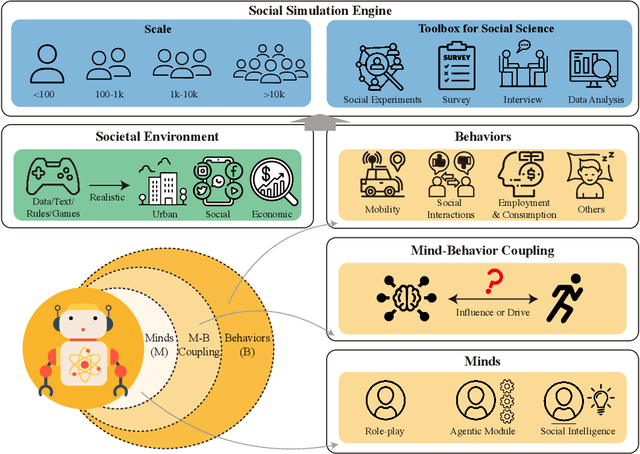
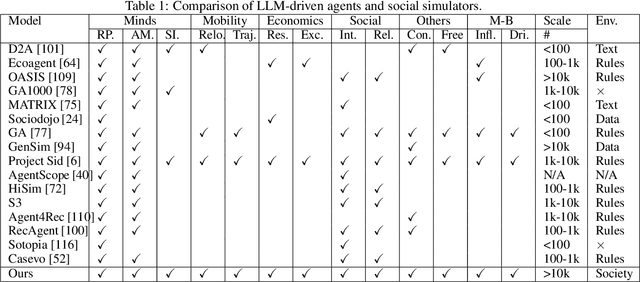
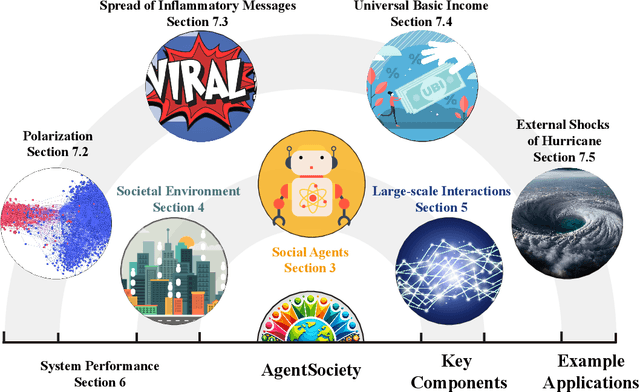

Abstract:Understanding human behavior and society is a central focus in social sciences, with the rise of generative social science marking a significant paradigmatic shift. By leveraging bottom-up simulations, it replaces costly and logistically challenging traditional experiments with scalable, replicable, and systematic computational approaches for studying complex social dynamics. Recent advances in large language models (LLMs) have further transformed this research paradigm, enabling the creation of human-like generative social agents and realistic simulacra of society. In this paper, we propose AgentSociety, a large-scale social simulator that integrates LLM-driven agents, a realistic societal environment, and a powerful large-scale simulation engine. Based on the proposed simulator, we generate social lives for over 10k agents, simulating their 5 million interactions both among agents and between agents and their environment. Furthermore, we explore the potential of AgentSociety as a testbed for computational social experiments, focusing on four key social issues: polarization, the spread of inflammatory messages, the effects of universal basic income policies, and the impact of external shocks such as hurricanes. These four issues serve as valuable cases for assessing AgentSociety's support for typical research methods -- such as surveys, interviews, and interventions -- as well as for investigating the patterns, causes, and underlying mechanisms of social issues. The alignment between AgentSociety's outcomes and real-world experimental results not only demonstrates its ability to capture human behaviors and their underlying mechanisms, but also underscores its potential as an important platform for social scientists and policymakers.
CityBench: Evaluating the Capabilities of Large Language Model as World Model
Jun 20, 2024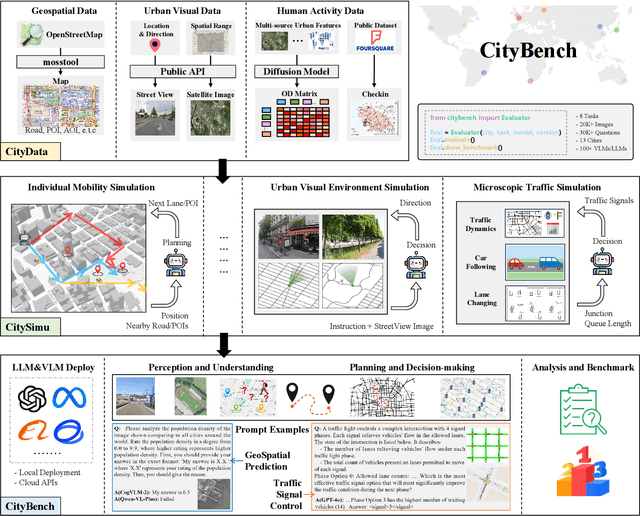
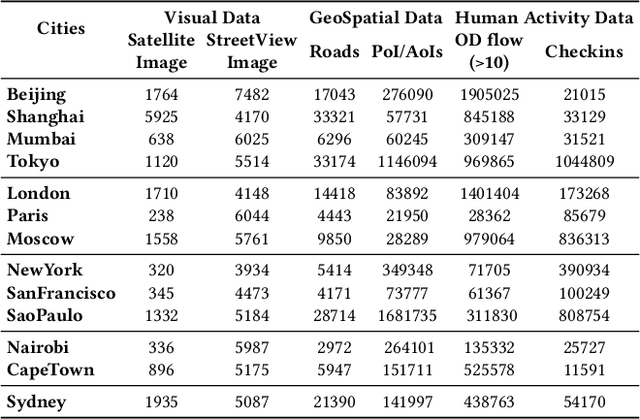

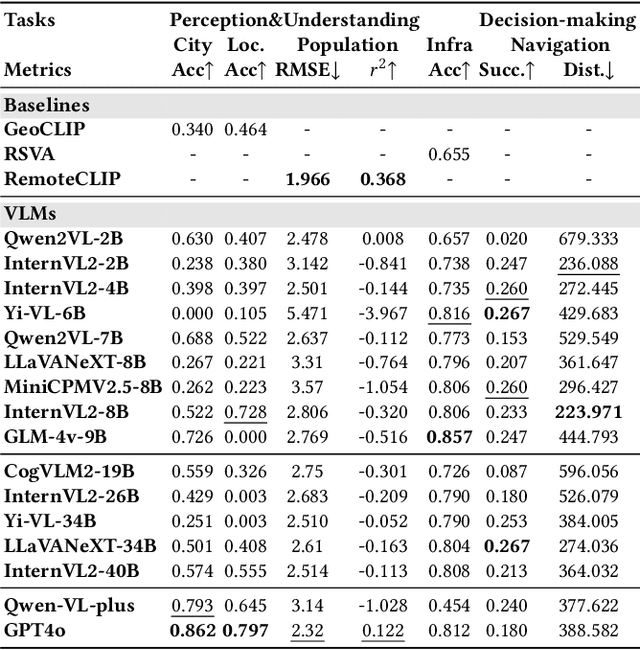
Abstract:Large language models (LLMs) with powerful generalization ability has been widely used in many domains. A systematic and reliable evaluation of LLMs is a crucial step in their development and applications, especially for specific professional fields. In the urban domain, there have been some early explorations about the usability of LLMs, but a systematic and scalable evaluation benchmark is still lacking. The challenge in constructing a systematic evaluation benchmark for the urban domain lies in the diversity of data and scenarios, as well as the complex and dynamic nature of cities. In this paper, we propose CityBench, an interactive simulator based evaluation platform, as the first systematic evaluation benchmark for the capability of LLMs for urban domain. First, we build CitySim to integrate the multi-source data and simulate fine-grained urban dynamics. Based on CitySim, we design 7 tasks in 2 categories of perception-understanding and decision-making group to evaluate the capability of LLMs as city-scale world model for urban domain. Due to the flexibility and ease-of-use of CitySim, our evaluation platform CityBench can be easily extended to any city in the world. We evaluate 13 well-known LLMs including open source LLMs and commercial LLMs in 13 cities around the world. Extensive experiments demonstrate the scalability and effectiveness of proposed CityBench and shed lights for the future development of LLMs in urban domain. The dataset, benchmark and source codes are openly accessible to the research community via https://github.com/tsinghua-fib-lab/CityBench
A GPU-accelerated Large-scale Simulator for Transportation System Optimization Benchmarking
Jun 15, 2024Abstract:With the development of artificial intelligence techniques, transportation system optimization is evolving from traditional methods relying on expert experience to simulation and learning-based decision optimization methods. Learning-based optimization methods require extensive interaction with highly realistic microscopic traffic simulators for optimization. However, existing microscopic traffic simulators are computationally inefficient in large-scale scenarios and therefore significantly reduce the efficiency of the data sampling process of optimization algorithms. In addition, the optimization scenarios supported by existing simulators are limited, mainly focusing on the traffic signal control. To address these challenges and limitations, we propose the first open-source GPU-accelerated large-scale microscopic simulator for transportation system simulation. The simulator is able to iterate at 84.09Hz, which achieves 88.92 times computational acceleration in the large-scale scenario with more than a million vehicles compared to the best baseline. Based on the simulator, we implement a set of microscopic and macroscopic controllable objects and metrics to support most typical transportation system optimization scenarios. These controllable objects and metrics are all provided by Python API for ease of use. We choose five important and representative transportation system optimization scenarios and benchmark classical rule-based algorithms, reinforcement learning, and black-box optimization in four cities. The codes are available at \url{https://github.com/tsinghua-fib-lab/moss-benchmark} with the MIT License.
 Add to Chrome
Add to Chrome Add to Firefox
Add to Firefox Add to Edge
Add to Edge